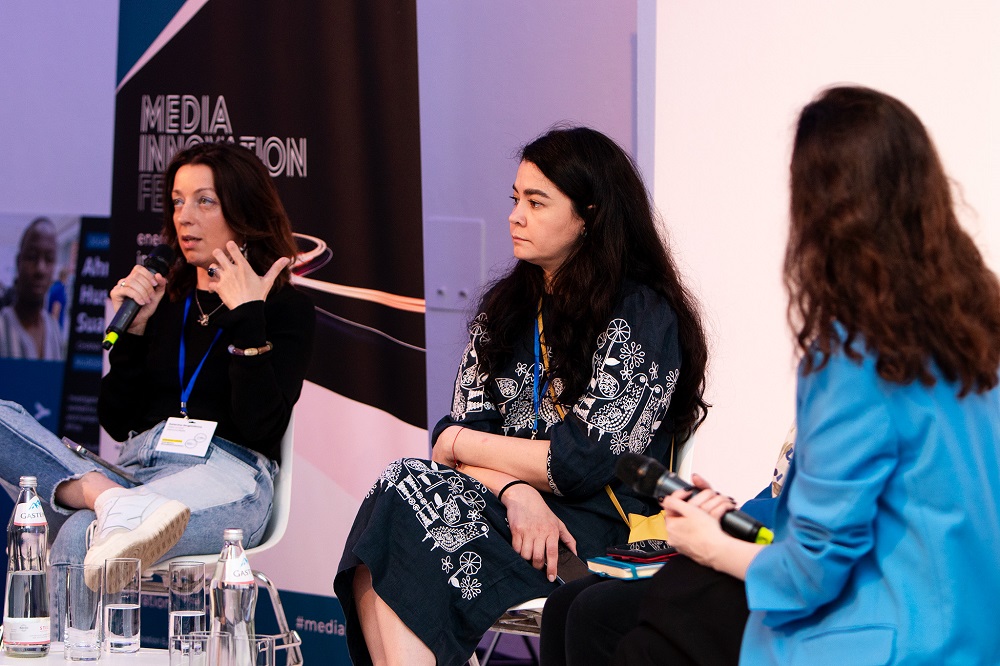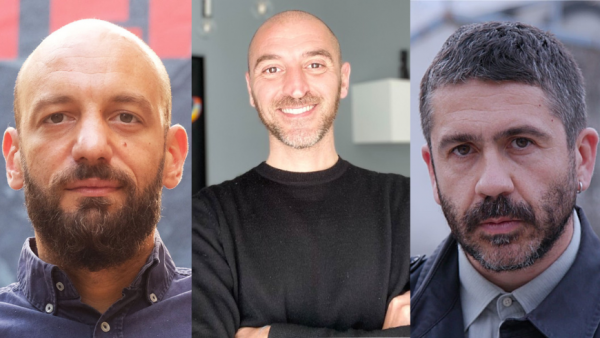In the age of AI, Ukraine reminds the world about “good, old-fashioned journalism, in the heat and the dust”, said BBC chief international correspondent Lyse Doucet, opening IPI’s World Congress panel on the challenges faced by Ukrainian journalists, more than one year after the start of Russia’s full-scale invasion.
Sadly, the “heat and the dust” of journalism in Ukraine also bring suffering and accumulated trauma. Many, if not most, Ukrainian journalists have had friends, colleagues and even immediate family killed, either as civilians or as soldiers fighting invading Russian forces, explained Ukrainska Pravda editor Sevgil Musaieva.
At the same time, the war continues to show the importance of journalism to the world, especially at moments such as the discovery of mass killings of civilians in Bucha, in early April 2022. Days after the retreat of Russian forces, journalists traveled to the outskirts of Kyiv to document the war crimes perpetrated there, Musaieva recalled.
Without journalists, many of the war’s human tragedies would have never been heard of. This is why bearing witness to the horrors seen ultimately motivates journalists to continue doing their job. And why, just as in 2014, in the aftermath of Russia’s annexation of Crimea, Ukrainian journalists have recently launched many new, bold media projects, said Katerina Sergatskova, editor-in-chief of Zaborona Media.
Still, finding the strength to go on is difficult, and allowing oneself a vacation from covering the war sounds to many like a luxury they simply cannot afford. As a result, the war has taken a toll on Ukrainian journalists’ mental health, Sergatskova said.
War fatigue is a prevalent issue, but far from the only challenge facing Ukrainian journalists. For instance, they must also deal with wartime limitations on media freedom, such as the existence of a government-enforced information policy, as well as bans on the immediate publication of footage of Russian attacks. In “long wars”, conflicts on editorial policy between journalists and authorities (as well as readers, who often try to “remind media of their citizen duties”) are inevitable, Sergatskova said.
Olga Rudenko, editor-in-chief of the Kyiv Independent, voiced related concerns, saying that in the context of the war, Ukrainian authorities are trying to see how far they can go in curtailing media rights and press access without provoking a strong reaction from the country’s journalistic community. For example, President Zelensky has not given any exclusive interviews to Ukrainian media for over a year. As a result, Zelensky’s foreign visits are one of the few occasions Ukrainian journalists have to ask their president questions, she added. The international community can help Ukrainian journalists preserve their rights by keeping media freedom at the center of attention, Rudenko added.
The frontline accreditation of journalists is an even greater issue. With the introduction of “red”, “yellow” and “green” zones of military accreditation, rules governing access to these zones have become more arbitrary, heightening risks to the physical safety of war reporters. This issue concerns foreign correspondents as much as it does Ukrainian journalists, Sergatskova added.
But the issues faced by Ukrainian journalists do not end there. These include insufficient funding for military risk insurance, as well as insufficient recognition in international media, many of which continue to pay Ukrainian “fixers” to help foreign correspondents instead of offering employment to local journalists.
Ukrainian media now have access to bullet-proof vests, but not enough is done to ensure the psychological well-being of journalists, Sergatskova said. Fortunately, foundations and other organizations are increasingly offering retreat opportunities for Ukrainian journalists abroad, panelists agreed.
Links:
Ukraine conflict: IPI call for solidarity and practical support


